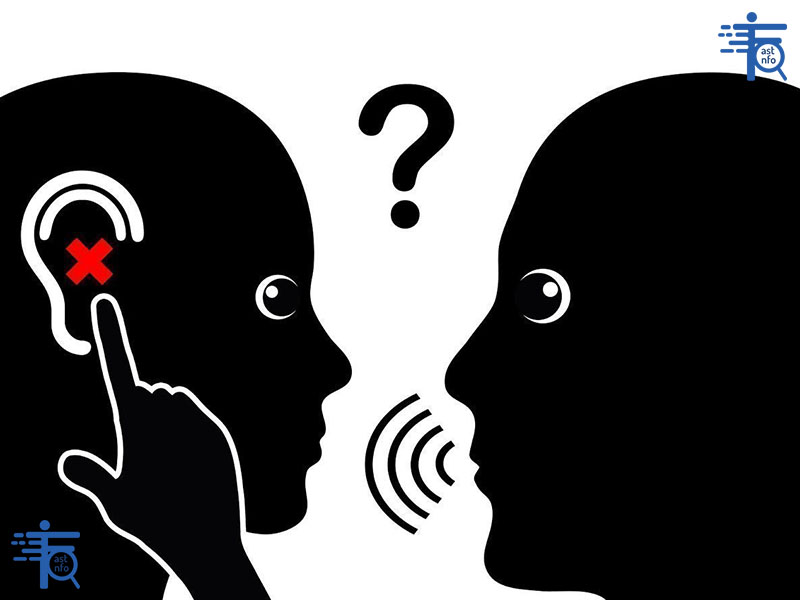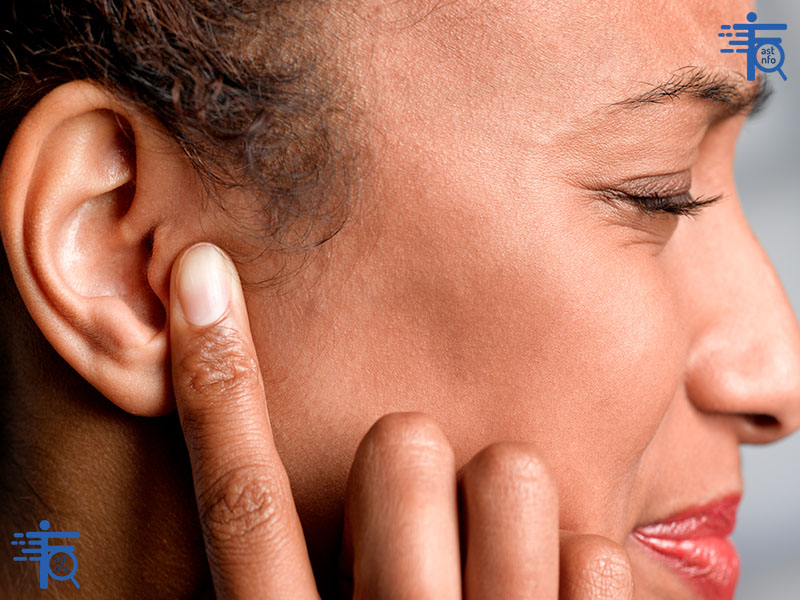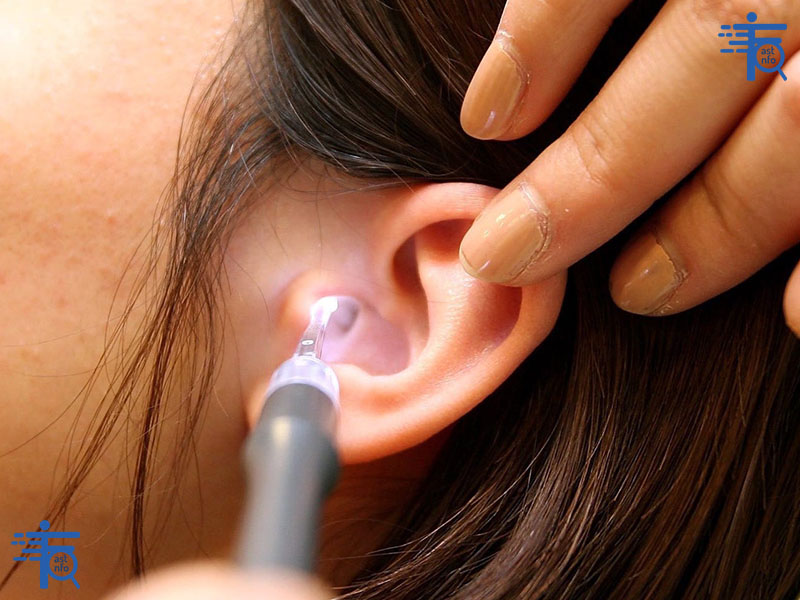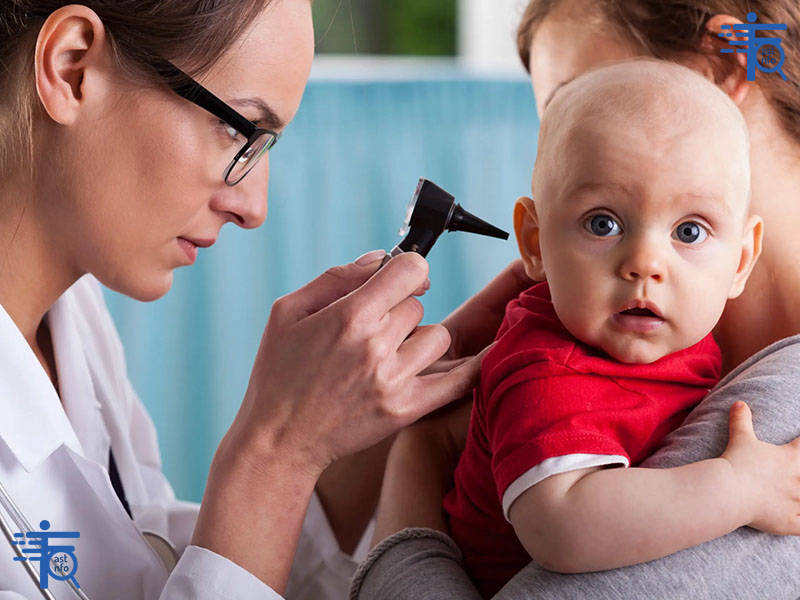How Does Being Hard of Hearing Differ from Being Deaf?
Being hard of hearing and being deaf are two distinct experiences related to hearing loss, differing primarily in the degree of hearing impairment and how it affects communication and daily life. Here’s a breakdown of the differences:
1. Degree of Hearing Loss
- Hard of Hearing: Individuals with mild to moderate hearing loss can still hear some sounds and speech, but they may struggle to hear clearly, especially in noisy environments. Hearing aids or assistive devices often help improve their ability to hear.
- Deaf: Individuals with severe to profound hearing loss hear very little or no sound at all. They may rely heavily on visual communication methods like sign language or lip-reading.
2. Communication Methods
- Hard of Hearing:
- May use hearing aids, cochlear implants, or assistive listening devices to enhance sound.
- Often rely on spoken language and may use lip-reading or amplified sound for better understanding.
- May benefit from captions or written communication in certain situations.
- Deaf:
- May use sign language (e.g., American Sign Language or ASL) as their primary mode of communication.
- May rely on written communication, lip-reading, or visual cues.
- Some deaf individuals use cochlear implants or hearing aids, but these devices may not restore full hearing.
3. Cultural Identity
- Hard of Hearing:
- May identify more with the hearing world and use spoken language as their primary means of communication.
- May not always identify with Deaf culture.
- Deaf:
- Many deaf individuals identify strongly with Deaf culture, which has its own language (e.g., ASL), traditions, and community.
- Deaf culture often emphasizes visual communication and takes pride in being deaf as a unique identity rather than a disability.
4. Impact on Daily Life
- Hard of Hearing:
- May experience difficulty in noisy environments or group conversations.
- Can often participate in spoken conversations with accommodations like hearing aids or amplified sound.
- Deaf:
- May face more significant barriers in auditory communication and rely on alternative methods like sign language or written text.
- May require accommodations like sign language interpreters or captioning in public settings.
5. Technology and Tools
- Hard of Hearing:
- Commonly use hearing aids, amplified phones, or assistive listening devices.
- May use apps or devices that enhance sound or provide captions.
- Deaf:
- May use video relay services (VRS) for phone calls, text-based communication, or visual alert systems (e.g., flashing lights for doorbells or alarms).
- Some may use cochlear implants, but not all deaf individuals choose this option.
6. Social and Emotional Experience
- Hard of Hearing:
- May feel isolated in social settings where hearing is challenging but can often navigate the hearing world with accommodations.
- Deaf:
- May experience more significant social barriers in hearing-dominated environments but often find strong community support within Deaf culture.

What are the symptoms of being hard of hearing?
Being hard of hearing, or having mild to moderate hearing loss, can manifest in various ways. The symptoms may develop gradually, making them easy to overlook at first. Here are common signs and symptoms of being hard of hearing:
1. Difficulty Understanding Speech
- Struggling to follow conversations, especially in noisy environments like restaurants or group settings.
- Frequently asking others to repeat themselves or speak more slowly.
- Misunderstanding words or responding inappropriately during conversations.
2. Turning Up the Volume
- Increasing the volume on the TV, radio, or other devices to levels that others find too loud.
3. Trouble Hearing High-Pitched Sounds
- Difficulty hearing high-frequency sounds, such as children’s voices, birds chirping, or doorbells.
4. Muffled or Distorted Sounds
- Speech and other sounds may seem muffled or unclear, as if people are mumbling.
5. Difficulty Hearing Consonants
- Struggling to distinguish between similar-sounding consonants (e.g., “s” and “f” or “p” and “t”).
6. Fatigue from Listening
- Feeling tired or stressed after prolonged conversations or social interactions due to the effort required to listen.
7. Avoiding Social Situations
- Withdrawing from social gatherings or conversations because of difficulty hearing and understanding others.
8. Ringing in the Ears (Tinnitus)
- Experiencing ringing, buzzing, or other noises in the ears, which can sometimes accompany hearing loss.
9. Difficulty Hearing on the Phone
- Struggling to understand speech during phone conversations, even when the volume is turned up.
10. Localizing Sounds
- Trouble identifying where sounds are coming from (e.g., not being able to tell which direction a car horn is coming from).
11. Ear Pain or Pressure
- In some cases, hearing loss may be accompanied by ear pain, pressure, or a feeling of fullness in the ear (especially if caused by an infection or blockage).
12. Reading Lips or Relying on Visual Cues
- Subconsciously relying on lip-reading, facial expressions, or body language to understand what others are saying.
When to Seek Help:
If you or someone you know is experiencing these symptoms, it’s important to consult a healthcare professional or an audiologist. They can perform a hearing test to assess the degree of hearing loss and recommend appropriate treatments, such as hearing aids, assistive devices, or other interventions.
Causes of Being Hard of Hearing:
Hearing loss can result from various factors, including:
- Aging (presbycusis)
- Prolonged exposure to loud noises
- Earwax buildup
- Ear infections
- Genetic factors
- Certain medications (ototoxic drugs)
- Medical conditions like diabetes or cardiovascular disease
Early detection and intervention can help improve quality of life and prevent further hearing deterioration.

What can cause you to be hard of hearing?
Being hard of hearing, or experiencing mild to moderate hearing loss, can result from a variety of factors. These causes can be broadly categorized into conductive hearing loss (related to the outer or middle ear) and sensorineural hearing loss (related to the inner ear or auditory nerve). Here are the most common causes:
Conductive Hearing Loss (Outer or Middle Ear Issues)
- Earwax Buildup
- Excessive earwax can block the ear canal, preventing sound from reaching the eardrum.
- Ear Infections
- Infections in the outer ear (otitis externa) or middle ear (otitis media) can cause fluid buildup and inflammation, leading to temporary hearing loss.
- Perforated Eardrum
- A hole or tear in the eardrum, often caused by infection, trauma, or sudden pressure changes, can impair hearing.
- Eustachian Tube Dysfunction
- Blockage or malfunction of the Eustachian tube (which regulates ear pressure) can cause fluid buildup in the middle ear, leading to hearing difficulties.
- Foreign Objects in the Ear
- Objects stuck in the ear canal (common in children) can block sound.
- Otosclerosis
- Abnormal bone growth in the middle ear can prevent the tiny bones (ossicles) from vibrating properly, leading to hearing loss.
Sensorineural Hearing Loss (Inner Ear or Auditory Nerve Issues)
- Aging (Presbycusis)
- Gradual hearing loss is a common part of aging, typically affecting the ability to hear high-pitched sounds.
- Noise-Induced Hearing Loss
- Prolonged exposure to loud noises (e.g., machinery, concerts, headphones at high volume) can damage the hair cells in the inner ear.
- Genetic Factors
- Hereditary conditions can predispose individuals to hearing loss.
- Illnesses and Infections
- Conditions like meningitis, mumps, measles, or autoimmune diseases can damage the inner ear or auditory nerve.
- Ototoxic Medications
- Certain drugs, such as some antibiotics (e.g., gentamicin), chemotherapy drugs, and high doses of aspirin, can harm the inner ear.
- Meniere’s Disease
- A disorder of the inner ear that causes vertigo, tinnitus, and hearing loss.
- Acoustic Neuroma
- A noncancerous tumor on the auditory nerve can affect hearing and balance.
Mixed Hearing Loss (Combination of Conductive and Sensorineural)
- Some individuals experience a combination of conductive and sensorineural hearing loss due to multiple factors.
Other Causes
- Head or Ear Trauma
- Injuries to the head or ear can damage the structures involved in hearing.
- Sudden Hearing Loss
- A rapid loss of hearing, often in one ear, can be caused by viral infections, circulatory problems, or unknown reasons.
- Chronic Diseases
- Conditions like diabetes, high blood pressure, or cardiovascular disease can affect blood flow to the inner ear, leading to hearing loss.
- Congenital Factors
- Hearing loss present at birth can result from genetic conditions, infections during pregnancy (e.g., rubella), or complications during childbirth.
Risk Factors for Hearing Loss
- Aging
- Exposure to loud noises
- Smoking
- Obesity
- Family history of hearing loss
- Occupational hazards (e.g., construction, music industry)

What are the treatment options?
The treatment options for clogged ears depend on the underlying cause. Here’s a comprehensive guide to the most effective treatments for different causes of clogged ears:
1. Earwax Buildup
Earwax blockage is a common cause of clogged ears. Here are the treatment options:
Home Remedies:
- Warm Olive Oil or Mineral Oil:
- Warm a small amount of oil (to body temperature) and put 2–3 drops into the affected ear. Let it sit for 10 minutes, then tilt your head to drain.
- This softens earwax, making it easier to remove.
- Hydrogen Peroxide Solution:
- Mix equal parts hydrogen peroxide (3%) and water. Put a few drops in your ear, let it bubble for 5–10 minutes, then drain.
- Avoid this if you have an ear infection or a perforated eardrum.
- Over-the-Counter Ear Drops:
- Use earwax removal drops (e.g., Debrox) to dissolve earwax.
Medical Treatments:
- Ear Irrigation: A healthcare provider can flush out earwax using a syringe and warm water.
- Manual Removal: A doctor may use special tools to remove earwax safely.
2. Sinus Congestion
Sinus-related clogged ears are often caused by allergies, colds, or infections. Here’s how to relieve them:
Home Remedies:
- Steam Inhalation:
- Boil water, pour it into a bowl, and inhale the steam with a towel over your head. Add a few drops of eucalyptus oil for extra relief.
- This helps open up the Eustachian tubes and relieve pressure.
- Nasal Decongestants:
- Use over-the-counter nasal sprays (e.g., oxymetazoline) or oral decongestants (e.g., pseudoephedrine) to reduce sinus swelling.
- Avoid prolonged use of nasal sprays to prevent rebound congestion.
- Saline Nasal Rinse:
- Use a neti pot or saline spray to flush out mucus and relieve sinus pressure.
Medical Treatments:
- Antihistamines: For allergy-related congestion.
- Prescription Medications: If sinusitis or an infection is present, your doctor may prescribe antibiotics or steroids.
3. Pressure Changes
Pressure-related clogged ears often occur during flights, diving, or driving at high altitudes. Here’s how to equalize ear pressure:
Home Remedies:
- Valsalva Maneuver:
- Pinch your nose, close your mouth, and gently blow as if you’re blowing your nose. This helps equalize ear pressure.
- Be gentle to avoid damaging your eardrum.
- Toynbee Maneuver:
- Pinch your nose and swallow repeatedly. This can help open the Eustachian tubes.
- Chewing Gum or Yawning:
- Chewing gum or yawning during altitude changes (e.g., flying) can help equalize pressure.
4. Ear Infections
Ear infections can cause fluid buildup and clogged ears. Here’s how to address them:
Home Remedies:
- Warm Compress:
- Apply a warm, damp cloth to the affected ear to relieve pain and promote drainage.
- Over-the-Counter Pain Relievers:
- Use ibuprofen or acetaminophen to reduce pain and inflammation.
Medical Treatments:
- Antibiotics: If the infection is bacterial, your doctor may prescribe antibiotics.
- Ear Drops: Prescription ear drops may be needed for severe infections.
5. General Tips for Relief
- Stay Hydrated: Drinking water helps thin mucus and prevent sinus congestion.
- Avoid Cotton Swabs: Inserting objects into your ear can push wax deeper and cause blockages.
- Manage Allergies: Use antihistamines or allergy medications to prevent sinus-related ear clogging.

Are there ways to prevent hearing loss?
Yes, there are several ways to prevent or reduce the risk of hearing loss. Hearing loss can result from various factors, including aging, noise exposure, infections, and lifestyle choices. By taking proactive steps, you can protect your hearing and maintain good ear health. Here are some effective strategies:
1. Protect Your Ears from Loud Noises
Noise-induced hearing loss is one of the most common and preventable causes of hearing damage.
- Use Ear Protection:
- Wear earplugs or noise-canceling headphones in loud environments (e.g., concerts, construction sites, or while using power tools).
- Choose ear protection with a high Noise Reduction Rating (NRR).
- Limit Exposure to Loud Sounds:
- Follow the 60/60 rule: Listen to music or audio at no more than 60% volume for no longer than 60 minutes at a time.
- Avoid prolonged exposure to noises above 85 decibels (dB).
- Take Breaks: Give your ears regular breaks from loud environments to recover.
2. Maintain Good Ear Hygiene
Proper ear care can prevent infections and damage that may lead to hearing loss.
- Avoid Inserting Objects:
- Do not use cotton swabs, hairpins, or other objects to clean your ears, as they can push wax deeper or damage the eardrum.
- Clean Ears Safely:
- Use a damp cloth to clean the outer ear. If you have excessive earwax, consult a healthcare provider for safe removal.
- Treat Ear Infections Promptly:
- Seek medical attention for ear infections to prevent complications like hearing loss.
3. Adopt a Healthy Lifestyle
Your overall health can impact your hearing.
- Eat a Balanced Diet:
- Include foods rich in antioxidants, vitamins (e.g., A, C, E), and minerals (e.g., magnesium, zinc) to support ear health. Examples: leafy greens, nuts, fish, and fruits.
- Exercise Regularly:
- Physical activity improves blood flow to the ears, which is essential for maintaining healthy hearing.
- Avoid Smoking:
- Smoking reduces blood flow to the ears and increases the risk of hearing loss.
- Manage Chronic Conditions:
- Control conditions like diabetes, high blood pressure, and high cholesterol, as they can affect hearing.
4. Be Cautious with Medications
Some medications (ototoxic drugs) can damage the ears and cause hearing loss.
- Consult Your Doctor:
- Ask about the potential side effects of medications, especially antibiotics (e.g., gentamicin) and pain relievers (e.g., aspirin in high doses).
- Never self-medicate or exceed recommended dosages.
5. Get Regular Hearing Checkups
Early detection of hearing issues can prevent further damage.
- Annual Hearing Tests:
- Schedule regular hearing exams, especially if you’re over 50 or exposed to loud noises frequently.
- Monitor Changes:
- If you notice signs of hearing loss (e.g., difficulty understanding speech, ringing in the ears), seek professional help immediately.
6. Protect Your Ears During Activities
Certain activities can put your ears at risk.
- Swimming:
- Use earplugs to prevent water from entering the ears, which can cause infections.
- Flying:
- Chew gum, yawn, or use the Valsalva maneuver to equalize ear pressure during takeoff and landing.
- Sports:
- Wear protective gear to prevent ear injuries.
7. Reduce Stress
Chronic stress can contribute to hearing problems like tinnitus (ringing in the ears).
- Practice Relaxation Techniques:
- Try yoga, meditation, or deep breathing exercises to manage stress.
8. Avoid Ototoxic Chemicals
Exposure to certain chemicals can harm your hearing.
- Workplace Safety:
- If you work with chemicals (e.g., solvents, heavy metals), use protective equipment and follow safety guidelines.
9. Educate Yourself and Others
Awareness is key to preventing hearing loss.
- Learn About Risks:
- Understand the causes and symptoms of hearing loss.
- Spread Awareness:
- Encourage friends and family to protect their hearing.
fastinfosearch site provides the best information
Suggested content:





No comment